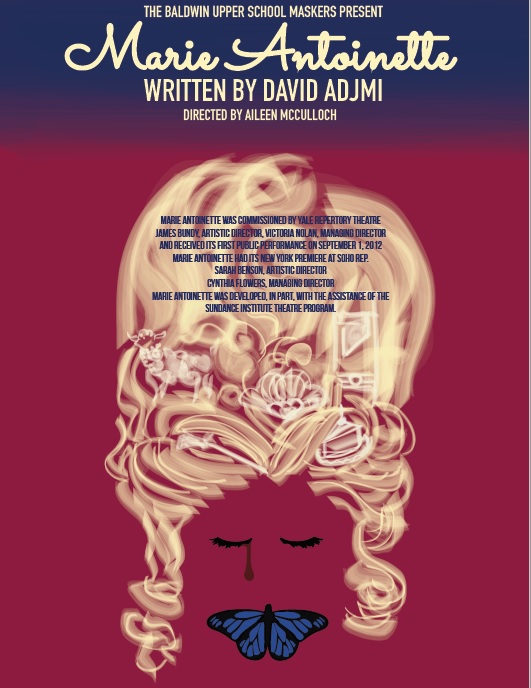The Hashtag Queen

Last weekend I watched The Baldwin School’s production of Marie Antoinette. It was a challenging play for a high school to put up, and they did so brilliantly.
The script covers the Queen’s life from her early years in the French court up until her fateful end, focusing on her character and attitude, and her reaction to how her adopted country perceived her – which is to say, in an unflattering light. Marie Antoinette was the victim of scurillous slander at the expense of her virtue, and scapegoated for France’s problems, particularly the country’s financial troubles and food shortages. She was blamed because, as an elite living in a bubble, she was unwilling or unable to appreciate how her actions looked to her poor and desperate subjects.
Marie Antoinette was known as the Butterfly Queen, but she might have been called the Hashtag Queen instead, as she was victimized by the same kind of mobbing that happens today on social media. Back then, they used word of mouth and the printed page to transmit information, instead of the Internet, but the effect was the same.
In fact, from what I’ve read about the French Revolution, there are many parallels with our time. France was divided into partisan factions, each seeing the other as a threat to society. The extreme left and right (the terms originate from this era) each enforced their own version of political correctness, making centrist politics untenable. Fake news was as much of a problem then as now, with rumors spreading across the country, inciting the factions against each other. Does it really matter how information is spread? It’s not about the technology, but about the social predilection.
The production I saw reminded us of current events, by dressing the revolutionaries and prison guards in yellow vests. How bad could it get today? I do think that the French Revolution was more violent than we are likely to experience now because the people then were so desperate – France was struggling to emerge from the feudal period, and people were literally on the brink of starvation, meaning they didn’t have much to lose.
In France during the time of Marie Antoinette, everyone eventually got tired of the extremism and just wanted law and order. That was how they ended up with Napoleon. How things will all play out in our time I cannot say, but it is always prudent to reflect on history.